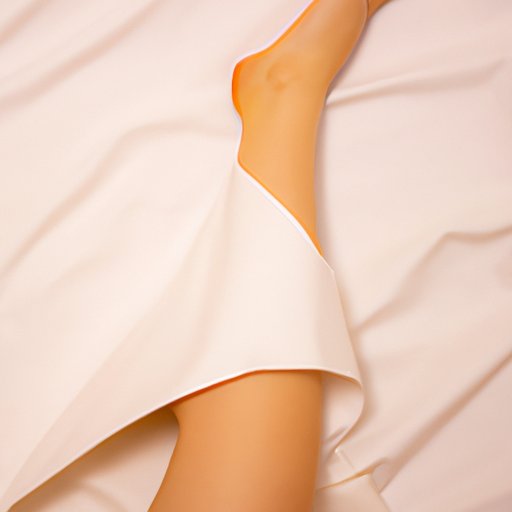
Introduction
After losing a significant amount of weight, many people are left with loose, sagging skin. This can be discouraging after working so hard to achieve weight loss goals. However, it’s important to remember that loose skin is a consequence of being overweight, not a failure on the part of the person who lost the weight. In this article, we’ll explore the truth about loose skin after weight loss, tips for dealing with it, and the importance of accepting and celebrating your body.
The Truth About Loose Skin After Weight Loss: Will it Ever Go Away?
Loose skin after weight loss is a common issue that affects both men and women. There are several factors that contribute to this, including age, genetics, and the amount of weight that was lost. While some people may notice a decrease in loose skin over time, it’s unlikely that it will go away completely without intervention.
Preventative measures, such as maintaining a healthy weight and staying hydrated, may help reduce the likelihood of developing loose skin in the first place. However, once it is present, it can be difficult to get rid of without medical intervention.
6 Ways to Combat Loose Skin After Weight Loss
While it may not be possible to completely eliminate loose skin after weight loss, there are ways to minimize its appearance and improve the overall health and tone of your skin.
Strength training and building muscle can help fill out loose skin, giving it a smoother and firmer appearance. Moisturizing your skin and avoiding excessive sun exposure can also help improve its elasticity and overall health.
In addition, there are nonsurgical interventions that can help, such as body wraps and massage therapy. For those looking for more dramatic results, surgical options such as tummy tucks and arm lifts may be considered. It’s important to do your research and consult with a qualified medical professional before pursuing any of these options.
Celebrating Your Weight Loss Journey, Loose Skin and All
It’s important to remember that loose skin after weight loss is a common issue, and it’s not something to be ashamed of. Rather, it’s a sign of progress and achievement. Celebrating your body, loose skin and all, is an important part of the weight loss journey.
By shifting the narrative around loose skin, you can begin to see it as a badge of honor rather than a problem to be fixed. Wearing clothing that makes you feel confident and comfortable, regardless of what others may think, can help shift your mindset towards body positivity and self-love.
Medical Interventions for Dealing with Loose Skin After Weight Loss
For those who are looking for more drastic options, there are medical interventions that can help with loose skin after weight loss. Lasers and ultrasound therapy are two options that can help stimulate collagen production and tighten the skin.
While these methods may offer promising results, it’s important to consult with a qualified medical professional before pursuing any kind of medical intervention. They can help you weigh the pros and cons of each method and determine whether it’s the right choice for you.
Advice from a Fitness Expert: Understanding Loose Skin After Weight Loss
To gain more insight into the issue of loose skin after weight loss, we spoke to a fitness expert. According to our expert, building muscle and focusing on strength training is key in dealing with loose skin.
They also emphasized the importance of taking care of your skin by staying hydrated and moisturizing regularly. Finally, staying active and incorporating exercises that target loose skin can also help improve its appearance.
Conclusion
Dealing with loose skin after weight loss can be a difficult journey, but it’s important to remember that it’s a sign of progress and achievement. While it may not go away completely on its own, there are ways to minimize its appearance and improve overall skin health. By embracing your body, loose skin and all, you can shift your mindset towards body positivity and self-love.
If you’re struggling with loose skin after weight loss, remember that you’re not alone. Take the time to explore different options and find what works best for you. With a little patience, self-care, and acceptance, you can continue to lead a healthy and fulfilling life.





